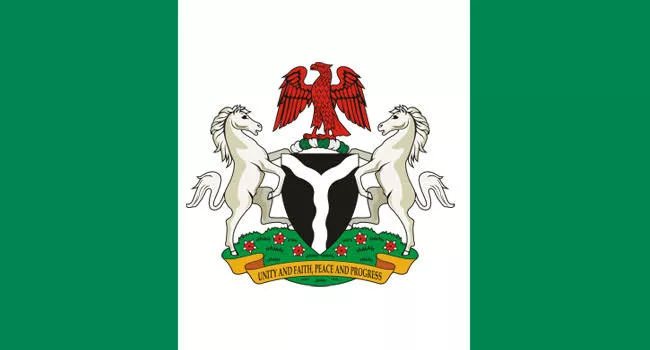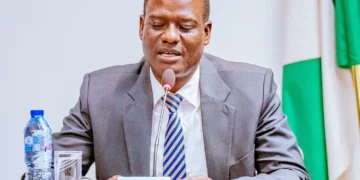Economists have said that Nigeria needs to grow its foreign reserves to more than $60 billion to be able to support the desired $1 trillion economy.
This is as the Nigeria’s government has said the various reforms in the country have seen increased investment interest in the country with foreign exchange inflow in the first quarter of 2024 surprising the total inflow for 2023. This is as Speaking at the Vanguard Economic Discourse themed ‘Reforms in The Era of Global Economic Uncertainties: Whither Nigeria’ in Lagos yesterday, Vice President Kashim Shettima and the governor of the Central Bank of Nigeria Dr Olayemi Cardoso said the several reforms and policies have begun to yield results.
Shettima, who was represented by Special Adviser on Economic Affairs, Tope Fasua, revealed that the President Bola Tinubu administration has been able to secure potential investments of more than $20 billion.
Listing the achievements of the government, he said “the president has been able to secure more than $20 billion in potential investments into the country, including $14 million from India, and commitments of $500 million for lithium development in Nasarawa state as well as $10 million from Germany for renewable energy projects.”
Noting that the federal government is open to ideas, he said “President Tinubu has always maintained that we don’t know it all. We are a humble but determined government opened to ideas and refinements from well-meaning members of society. We are not afraid to backtrack, and review if our policy will impose undue hardship on Nigerians.
“This administration is not out to make the lives of Nigerians tougher but to the Nigerian economy sustainable and the lives of our people more enduring. You can be rest assured that the next few years will be full of positive achievements, improvements in standards of living, high productivity, food security, bumper harvests and remarkable achievement with the grace of Almighty God.”
On his part, governor of the Central Bank of Nigeria (CBN) who was represented by director of Risk, CBN, Blaise Ijebor, noted that the policies of the apex bank had seen the foreign exchange inflow into the country in the first three months of the year rise by 136 per cent compared to the total inflows recorded in 2023.
He reaffirmed the CBN’s commitment to maintaining a transparent and functional forex market where price discovery is guided by market-driven frameworks and that this approach will lead to the long-term stability of the naira.
“We remain committed to using all the orthodox monetary policy tools available to us to address inflation. We have also embarked on major reforms to liberalise the foreign exchange market, which has enhanced transparency, reduced arbitrage opportunities, promoted stability and improved the liquidity in the market.
“The settlement of all valid forex forwards, which was one of my commitments when I came on as governor of the Central Bank of Nigeria, has also improved the confidence of stakeholders. We are already seeing the result of these reforms in the growth of forex flows into the country. The forex flows into the country in the first quarter of 2024 was 136 per cent of the total inflows that we had in the whole of 2023.
“We continue to be committed to a transparent and functional FX market where price discovery is based on market-driven frameworks and we are confident that this will lead to long-term stability of the naira which I know is what all of us seek.”
“We are confident that a good implementation of our reform program will restore the economy to the path of inclusive and accelerated economic growth in the near term. I won’t lie but much more work is required to address our economic challenges but let me assure you that the Central Bank of Nigeria is committed to and will continue to enhance its effort to deliver on its mandate of promoting monetary and price stability in Nigeria,” Cardoso said.
Also speaking at the event, chief executive of Economic Associates, Dr Ayo Teriba, noted that with the current level of external reserves, the country is not prepared for a $1 trillion economy noting that asking the banks to recapitalize while there is no buffer and the issue of inflation has not been address will lead to an erosion of value.
According to him, Nigeria has less than $40 billion in reserves which is about adequate for a $350 billion economy, “so we need not less than $60 billion in reserves if we are serious about achieving a $1 trillion economy.”





